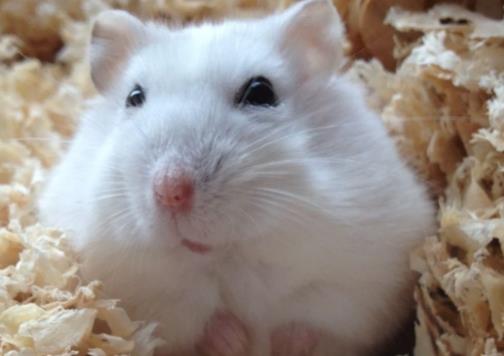Determining if a hamster is pregnant requires observing several key signs. Combining scientific methods with careful observation will yield more accurate results:

I. Behavioral Changes
Nesting Behavior: Pregnant female hamsters will frantically gather bedding, paper towels, and other materials to build nests (usually starting 7–10 days into pregnancy).
Increased Appetite: Appetite may suddenly rise by 30%–50%, with a particular preference for high-protein foods.
Reduced Activity: In the later stages, they will become lethargic and move cautiously.
II. Physical Characteristics
Weight Changes: Weight increases by 5–10 grams per week after conception (weigh at the same time daily for accuracy).
Abdominal Changes:
Days 5–7: The abdomen begins to round out.
Days 10–12: Distinct hard lumps (fetal bones) can be felt.
After Day 15: The abdomen droops noticeably into a pear shape.
Nipple Changes: Nipples become red and prominent 7 days into pregnancy (especially more obvious in female hamsters).
III. Professional Detection Methods
Palpation: 10 days after conception, gently press both sides of the abdomen with the thumb and index finger—grape-like hard lumps (fetus) can be felt (must be performed by a professional).
X-ray Examination: Fetal bones become visible 12 days after conception (requires equipment at a veterinary clinic).
IV. Notes
Pseudopregnancy: Approximately 20% of female hamsters experience pseudopregnancy (swollen breasts but no fetuses), which resolves on its own after 7–10 days.
Mating Confirmation: It is recommended to record the mating date (hamsters have a gestation period of 16–22 days).
Environmental Management: Once pregnancy is confirmed, immediately separate the hamster into its own cage and provide a quiet environment.
V. Emergency Situations
Seek immediate veterinary care if any of the following occur:
Pregnancy exceeding 25 days without giving birth
Vaginal bleeding
Complete loss of appetite
It is advisable to prepare a birthing nest (a 15×20cm small space + dust-free bedding) and maintain the ambient temperature at around 25°C. Hamsters are crepuscular animals, so observations in the evening are more accurate.
